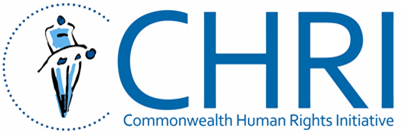We wish to share with you the following report from the Commonwealth Human Rights Initiative(CHRI), an organisation working on promoting ‘the practical realisation of Human Rights in the countries of the Commonwealth’ by focussing on ‘building and reforming systems of governance which are essential for the protection and promotion of Human Rights’. The CHRI is located at New Delhi, London and Accra. The following report received by AHRC is an Executive summary of CHRI’s fact-finding mission to the Maldives, ‘prompted by grave concerns regarding the protection of human rights, democracy and the rule of law in the Maldives’. The Executive summary is appended and the full report can be found at http://bit.ly/21eZeRO

SEARCHING FOR A LOST DEMOCRACY:
A FACT FINDING MISSION REPORT ON THE MALDIVES
(EXECUTIVE SUMMARY)
Below is the executive summary of CHRI’s fact finding mission report “Searching for a Lost Democracy”. Full report is available at http://bit.ly/21eZeRO
INTRODUCTION
Prompted by alarming reports of human rights violations, threats to democracy and the rule of law in the Maldives, the Commonwealth Human Rights Initiative (CHRI) mounted a fact-finding mission to the Maldives in November 2015. The mission’s objective was to evaluate the Maldives’ compliance with the Commonwealth’s fundamental values laid out primarily in the 2013 Commonwealth Charter, as well as in the Latimer House Principles and international standards. The mission found that the Maldives is in clear violation of the above.
CHRI commissioned a diverse and expert fact-finding team made up of: Mr. Satyabrata Pal, a former member of the Indian National Human Rights Commission, Ms. Kishali Pinto-Jayawardena and Mr. Asad Jamal, both prominent legal practitioners from Sri Lanka and Pakistan respectively, and Mr. Uladzimir Dzenisevich from CHRI.
The full findings of the mission are published in its report entitiled “Searching for a Lost Democracy -A Fact Finding Mission Report on the Maldives”
Principal among these findings is that a sure slide to authoritarianism, as well as a flagrant disregard to the rule of law, human rights and good governance is taking place in the Maldives. This is compounded by the rise of radicalised non-state actors targeting those perceived to be secular, unorthodox or “un-Islamic”. The government has been unwilling to punish these perpetrators, instead tolerating them, which threatens core democratic and Commonwealth values. Government policies are disenfranchising and in some cases jeopardising political opposition, endangering the functioning of human rights organisations, activists and journalists, and fast narrowing the space for free expression. These findings echo the international community’s concerns regarding the erosion of democratic values in the Maldives.
SUMMARY OF FINDINGS
Slide to Authoritarianism, exemplified by:
• Lack of separation of powers between Parliament, Executive and Judiciary;
• Adoption of repressive laws and regulations, such as the Anti-terrorism Act 2015, re-introduction of the death penalty, and a pending Bill prohibiting calls for sanctions against government and tourism boycott;
• Police violence and intimidation against activists, journalists and opposition.
Increasingly politicised, partisan and tyrannical Judiciary:
• The composition of the Judicial Service Commission (JSC), tasked with vetting and appointing judges, is flawed leading to a politicised judiciary.
• Vast majority of judges were appointed during the previous authoritarian rule, with which they appear aligned, and reappointed by JSC.
• Supreme Court has harshly targeted independent institutions and lawyers, and failed to guarantee right to a fair trial to accused, exemplified by the internationally criticised trial of former President Nasheed;
Independent institutions, including anti-corruption and police oversight bodies, unable to fulfil their mandate:
• They lack financial and human resources as well as adequate legal frameworks;
• They operate in an environment of incessant interference from the judiciary and the government, exemplified by:
o arbitrary dismissals and pro-ruling party appointments;
o other measures that impact their integrity such as discounted sale of real estate property to their members.
Radicalisation poses an existential threat to Maldivian democracy:
• The Maldives has become a fertile recruitment ground for jihadist fighters in Iraq and Syria;
• Radicalised elements continuously harass and attack individuals perceived to be secular, unorthodox or “un-Islamic” with impunity, as government tolerates instead of punishes these perpetrators;
• The rise of ultra-conservative and radical groups severely undermines advancement of women’s rights and gender equality.
RECOMMENDATIONS
In order to reverse the authoritarian shift and tackle this radicalisation, the fact-finding mission has made a number of recommendations to various stakeholders including the Maldivian government, the Commonwealth and international community.
1. The government is urged to respect the principle of separation of powers and constitutionally protected human rights; to cease assaults on civil society, journalists and activists through repressive laws and practices; to ensure impartiality and accountability of the police; to release all political prisoners; to rectify the poor state of the judiciary and ensure its independence and impartiality; to recognise the extent of radicalisation and take steps to tackle it; to cease interference with independent institutions; and to investigate threats, abductions and attacks carried out on political and religious grounds.
2. The Commonwealth is asked to conduct a thorough investigation into the abuse of power, human rights violations and threats to democracy in the Maldives; continue to keep the Maldives under scrutiny until the time the government re-establishes the rule of law, properly exercises democratic values, and ensures the separation of the Executive, Judiciary and Legislature in keeping with Commonwealth values; and to suspend the Maldives from the Commonwealth if the country fails to do so.
3. The international community is urged to continue to keep the Maldives under scrutiny and resort to sanctions if the situation continues to deteriorate; to call on the Maldives to unconditionally release all political prisoners including former President Nasheed as well as all individuals detained unlawfully or arbitrarily; to engage with the Maldives to formulate strategies to tackle radicalisation; and to continue supporting Maldivian civil society and capacity building of independent institutions.
For more information please contact:
Uladzimir Dzenisevich (email: uladzimir@humanrightsinitiative.com; phone: +91-11-43180-213)